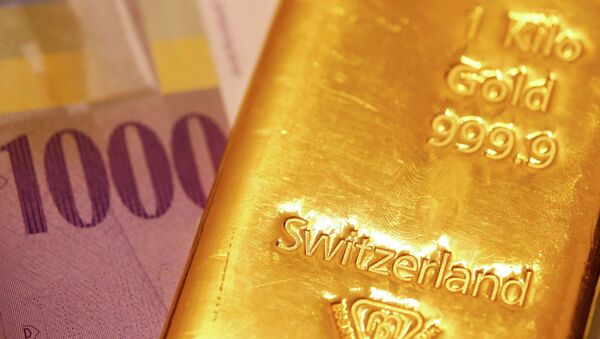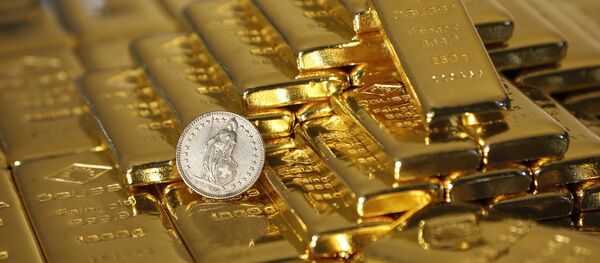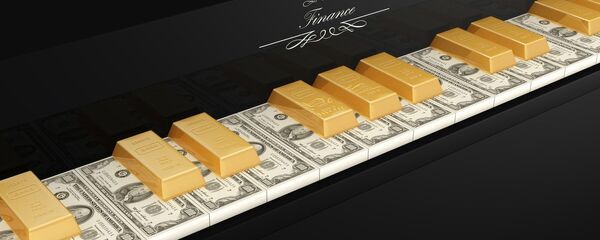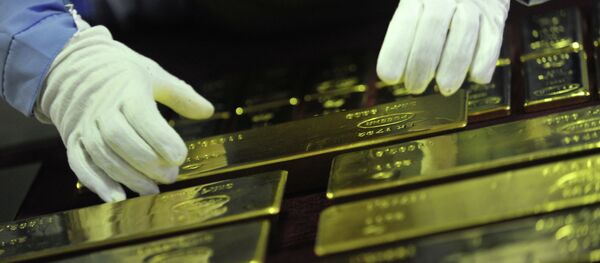On January 15, the Swiss National Bank (SNB) removed the minimum exchange rate for the franc against the euro (1.20 francs per euro), which was introduced in 2011 amid the eurozone crisis. The decision prompted investors to buy safe haven assets in gold, leading to the growth of gold prices in the past days.
"Certainly, the recent SNB decision will have some short-term influence on the price of gold. However, long-term fundamentals will surely influence the price of gold during 2015," a researcher at Gold Eagle providing leading analysis on gold market tendencies since 1997 told Sputnik.
The Chinese intention to weaken the US dollar's dominance in global finance and promote the yuan as an alternative has been manifest in its launching of swaps and forwards between the yuan and the national currencies of some of the country's economic partners, including Russia, New Zealand and Malaysia.
Moreover, the current slump in oil prices is another major factor, according to Gold Eagle analysts.
Oil prices have fallen dramatically since June 2014 and now stand below $50 per barrel. The fall was triggered by the decision of the Organization of Petroleum Exporting Countries (OPEC) not to cut oil production, and continued after OPEC failed to agree on production curbs during a meeting in November.
These concerns have been caused by the possible exit of Greece from the eurozone after the country's parliament failed to elect a president in the final round of voting. The Greek parliament will now be dissolved, and a snap election will take place on January 25. The opposition party Syriza, which promised to reconsider the country's agreements with foreign creditors, is likely to win the upcoming election, according to polls.
As a result, a number of global monetary experts are forecasting that the price of gold will reach $1,300/oz or more in 2015.
Bullish forecasts on the price of gold in 2015 have become particularly widespread following the Swiss Central Bank's move on January 15.
Explaining the reasons behind SNB's decision at a press conference, Thomas Jordan, chief of the bank, cited the decreased overvaluation of the franc. The Swiss currency was significantly overvalued during the period of high levels of uncertainty on the eurozone financial markets. Today, however, "enforcing and maintaining the minimum exchange rate for the Swiss franc against the euro is no longer justified," Jordan concluded.




